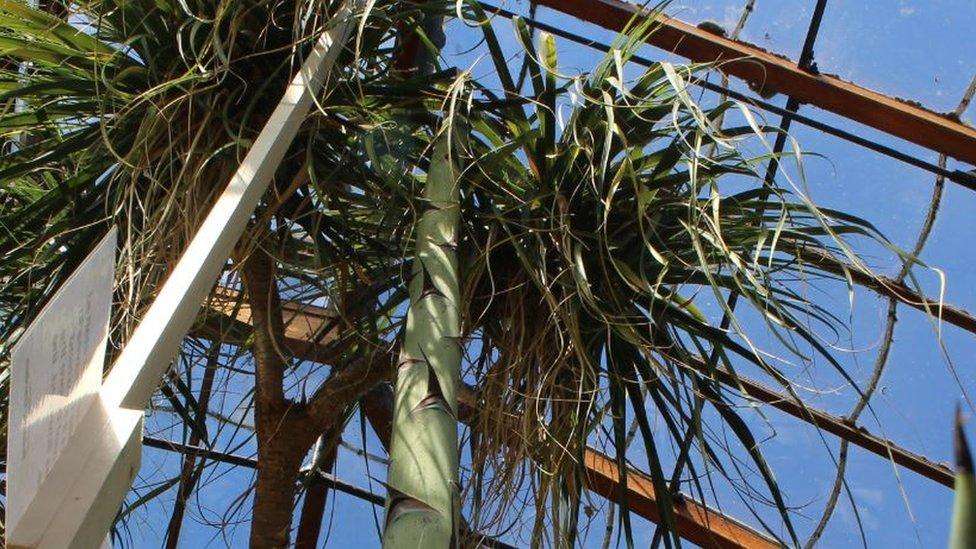Cambridge moonflower: Rare bloom flowers again
- Published
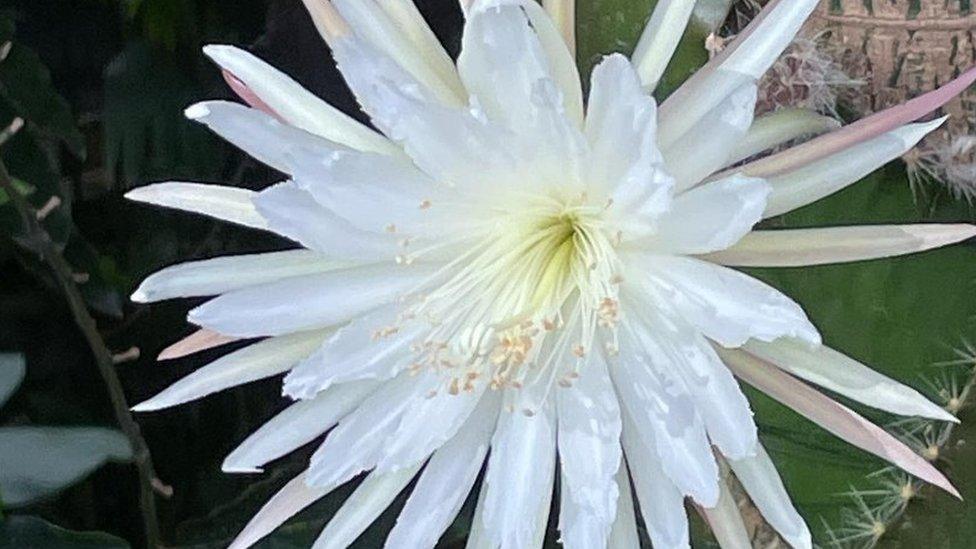
The flower bloomed at about 17:00 GMT on Saturday
A rare Amazonian cactus has bloomed, but its beauty was short-lived as it starts to die after just 12 hours.
The moonflower, or Strophocactus wittii, is part of the collection at Cambridge University Botanic Garden.
The plant is "very rare" in captivity and when it bloomed in February 2021, it was believed to be the first time one had ever flowered in the United Kingdom.
It bloomed again at about 17:00 GMT on Saturday.
The flower usually comes out overnight and only lasts for 12 hours.
However, it "surprised us with a late afternoon bloom", staff wrote on Twitter, external on Saturday.
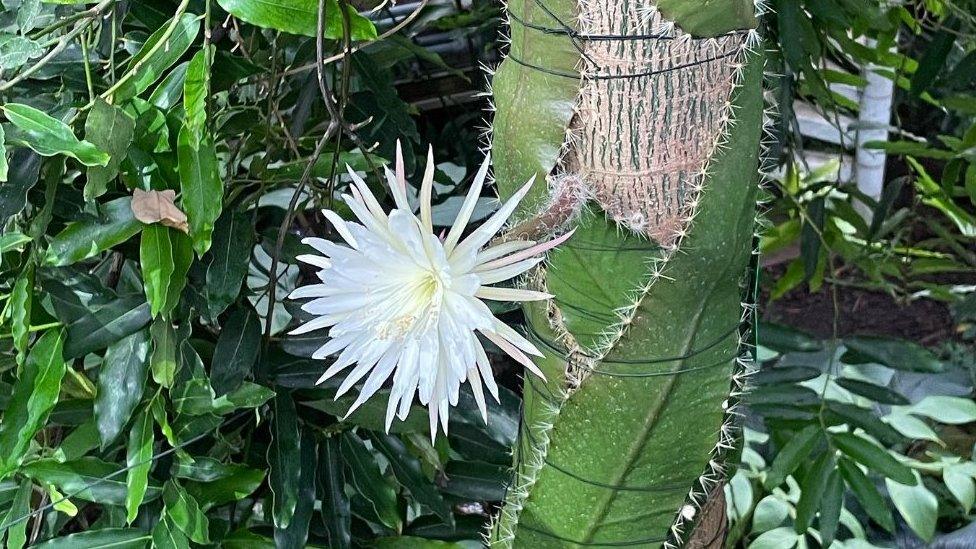
The flower lasts only 12 hours before fading
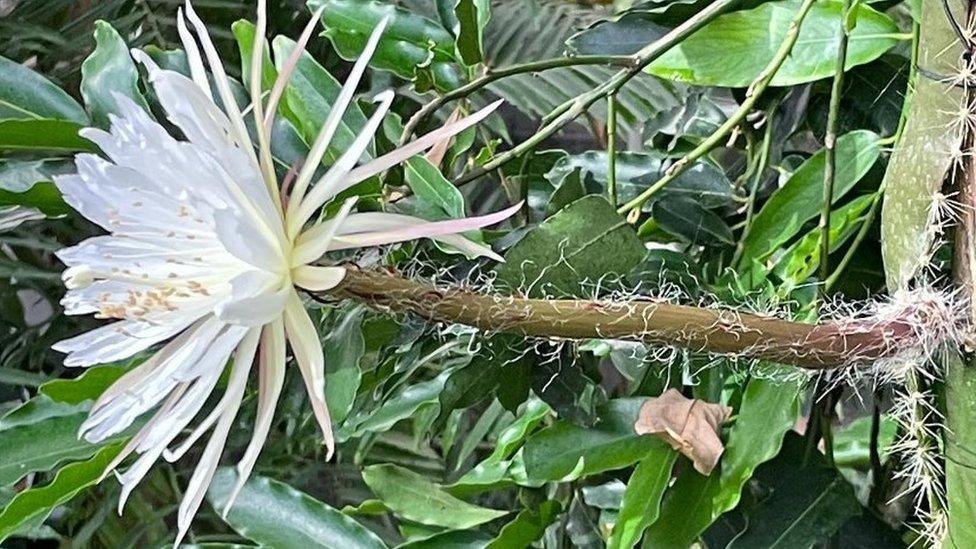
The flower's progress has been watched on a live webcam
When it first flowered in 2021, it attracted the attention of about 500,000 people from around the world, who tuned in to a webcam to join the long wait during lockdown.
While the moonflower is not rare in the wild, it is rare in cultivation, a botanic garden spokesperson said.
This species of Strophocactus is grown in just 16 botanic gardens worldwide.
Staff trained a live webcam, external on the plant earlier this month when a bud began to grow.
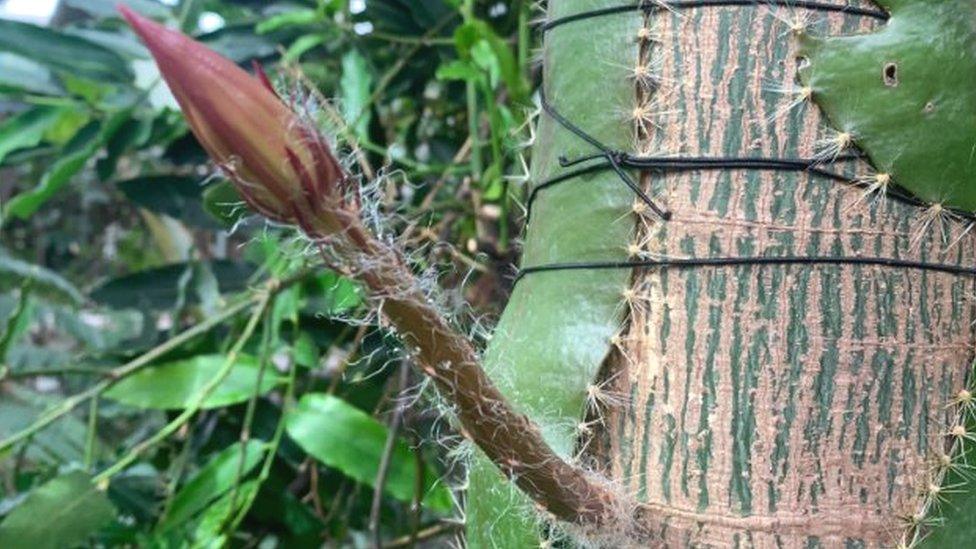
A webcam was installed to capture the moment the moonflower bloomed - this was it last week
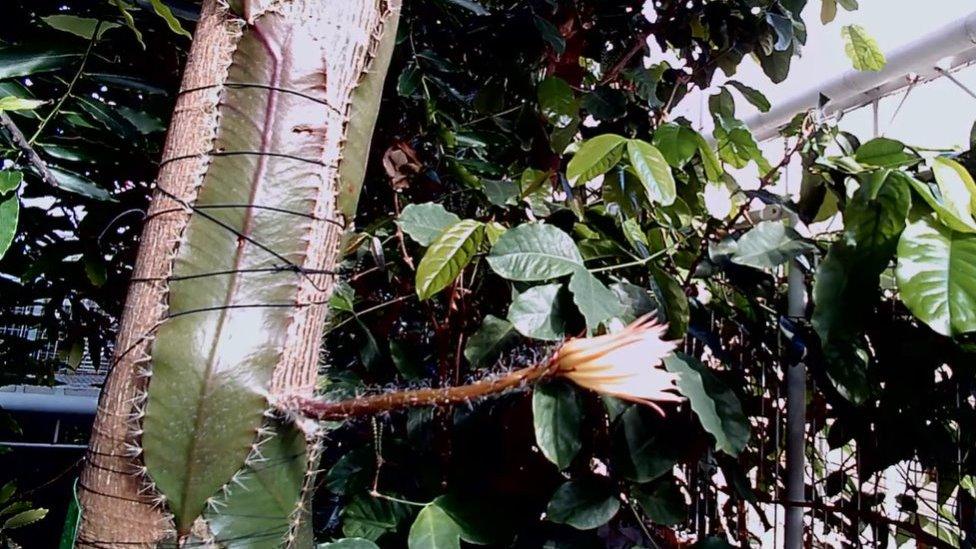
By Sunday morning, after an overnight flourish, it was fading away
Staff at the garden have been keen to point out that their plant is not the same as other flowing cacti which have the same common name of moonflower.
"The name moonflower is given to a lot of cacti, external which people often have flowering at home," senior horticulturist Kathryn Bray said.
"This plant - Strophocactus wittii - is definitely very rare in the UK and in botanic gardens in general, outside its native habitat in the Amazon, so it's important to always go by the Latin name."

Find BBC News: East of England on Facebook, external, Instagram, external and Twitter, external. If you have a story suggestion email eastofenglandnews@bbc.co.uk
Related topics
- Published13 March 2023
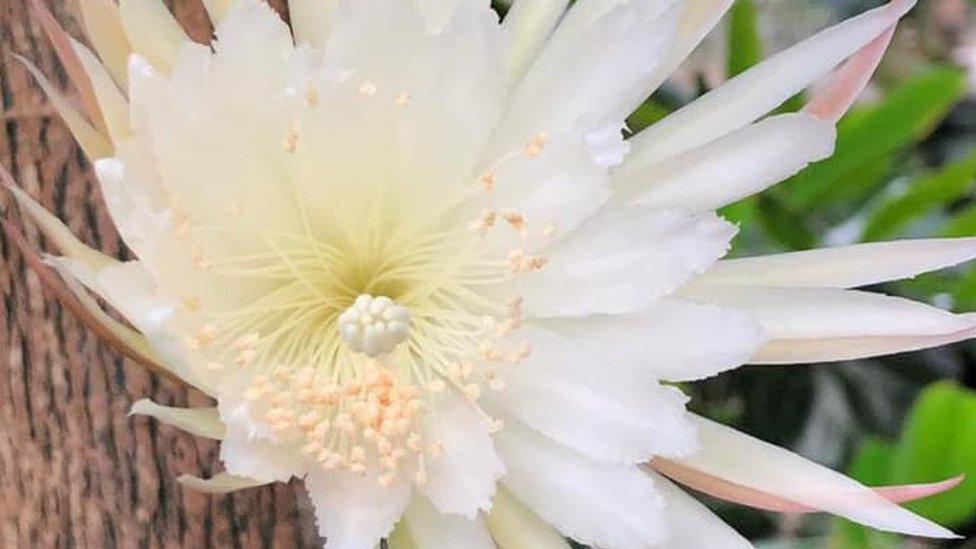
- Published20 February 2021
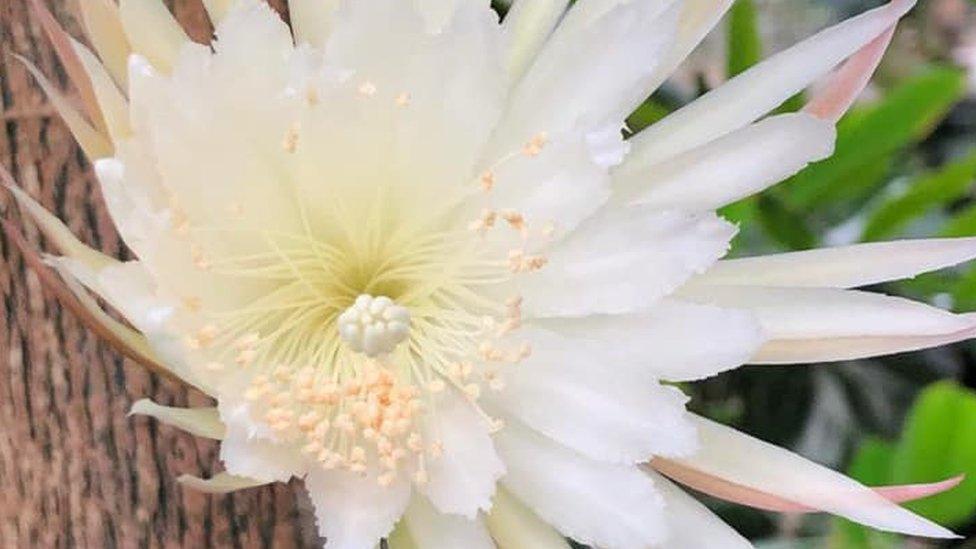
- Published20 February 2021
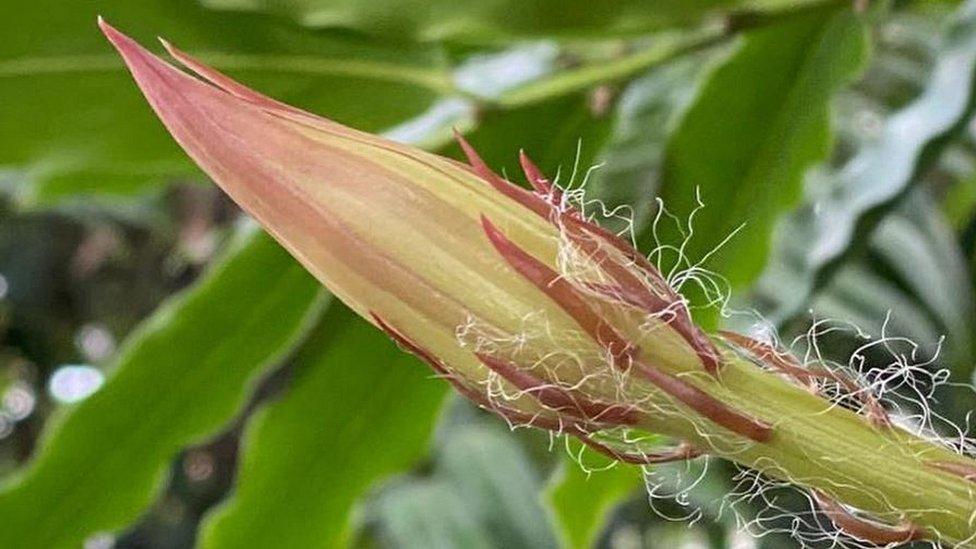
- Published11 February 2021
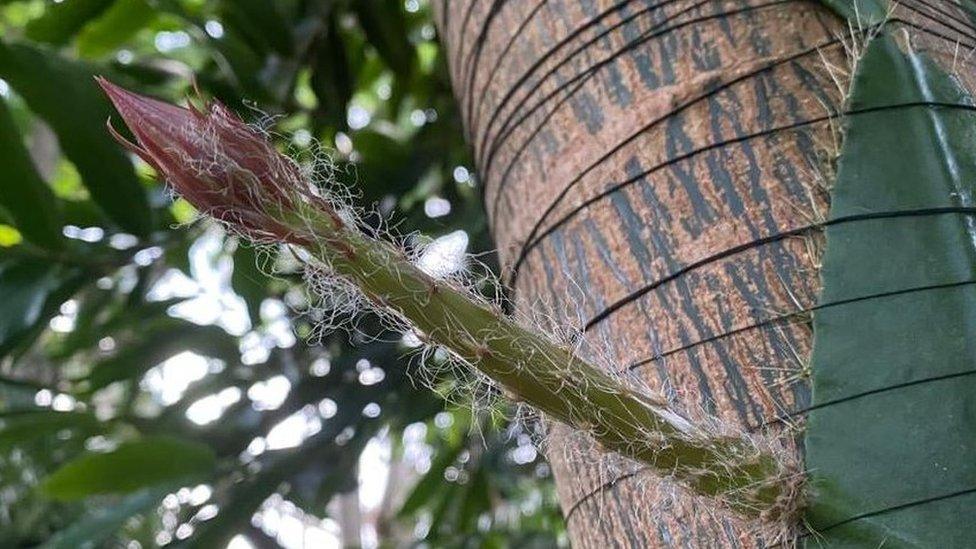
- Published10 September 2019
